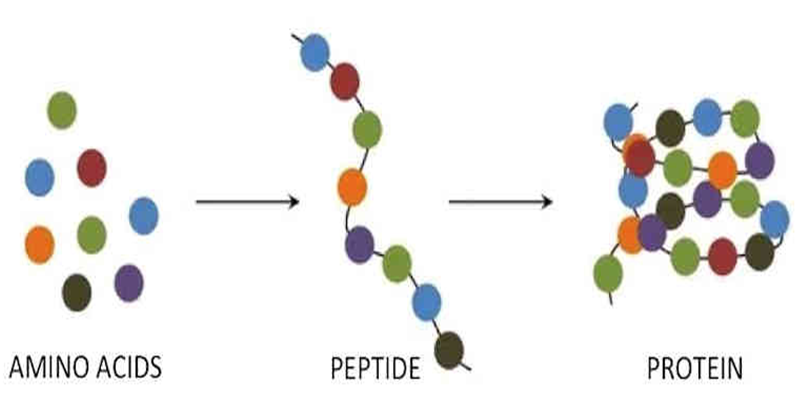The importance of amino acids
Amino acids play a role in almost every system throughout our body. Amino acids ensure the storage of nutrients such as carbohydrates, minerals, vitamins, proteins, fats and water. Due to an optimal balance of amino acids, disorders such as osteoarthritis, diabetes, insomnia, erection and cholesterol problems are less likely to occur.

Since a large part of our cells, muscles and tissue consists of amino acids, they perform many important functions in our body. In addition, amino acids are the building blocks of proteins. Specifically, a protein is made up of one or more linear chains of amino acids, each of which is called a polypeptide. They are essential for wound healing and tissue repair (especially muscles, bones, skin and hair) and also for counteracting the negative effects associated with metabolic disorders.
Essential amino acids
Amino acids are classified into three groups essential amino acids, nonessential amino acids and conditional amino acids. Essential amino acids cannot be made by the body. As a result, they must come from food. The ten essential amino acids are: arginine, histidine, isoleucine, leucine, lysine, methionine, phenylalanine, threonine, tryptophan, and valine.
A lack of any of the essential amino acids in the diet can lead to poor health and death. For that reason, the analysis of amino acid is important to determine the quality of protein in food, feed, and pharma. Ansynth is the expert in amino acid analysis offering a variety of methods that can quickly and accurately quantify the amino acids present in almost any sample.
For more information about amino acid analysis? Contact sales@ansynth.com